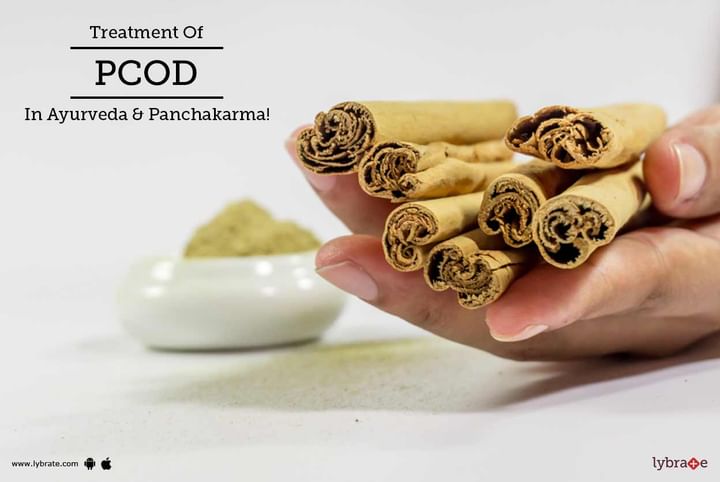Treatment Of PCOD In Ayurveda & Panchakarma!
A common hormonal disorder related to metabolism, Polycystic Ovarian Disease, abbreviated as PCOD, affects women of reproductive age group. It is characterized by an errant menstrual cycle due to the formation of a single or multiple ovarian cyst. There is an abnormal follicular growth in the ovary due to which the follicles do not mature. This leads to the release of high levels of luteinizing hormones in the bloodstream from the pituitary gland. This further results in disrupted ovulation due to high production of testosterone hormone in women.
Symptoms of PCOD -
PCOD is characterized by an irregular or a faulty menstrual cycle. In addition to this, there is the problem of weight gain or obesity, and irregular fat deposition especially in the pelvic area. Moreover, women suffer from insulin resistance and difficulty in conceiving. Sometimes, in young girls, skin problems like acne and other eruptions are reported.
Causes of PCOD -
According to Ayurveda, PCOD is a Kapha and Vata disorder which disturbs the process of ovulation in the women of fertile age group. Ayurvedic treatment involves clearing the obstructions of Vata dosha of the pelvic area for balancing out the metabolism and for normalizing the menstrual cycle.
Kapha affects the digestion, referred to as jatharaagni, which leads to poor metabolism consequentially affecting the metabolism of the seven tissues (referred to as dhatu agni). In PCOD, the affected dhatus are rasa (plasma and lymph), meda (adipose or fat tissue), and artava (the female reproductive system). Ama enters the artava dhatu disturbing the pitharaagni which leads to poor functioning of the system.
Many patients are administered with hormones for treating the PCOD which actually aggravates the condition by providing only peripheral relief. Ayurveda, on the other hand, aims to treat PCOD holistically by balancing all the doshas (to prevent vitiation).
Treatment -
PCOD can be managed and treated through the following:
-
A balanced diet comprising of a suitable amount of food from all the food groups. Fruits and vegetables are recommended.
-
Light exercises and an active lifestyle to correct the doshas.
-
Certain Yoga asanas like Nadi Shodhana (Alternate nostril breathing), Bhujangasana (Cobra pose), Naukasana (Boat Pose), Baddha Konasana (Butterfly pose), Dhanurasana (Bow pose), Malasana, Prasarita Asana, and Shavasana (Corpse pose) help in correcting the doshas associated with the PCOD.
-
It is advisable to follow a lifestyle which does not aggravate any of the dosha of the body.
-
Smoking, drinking, and drug abuse worsen the condition.
Treatment Through Panchakarma -
Panchakarma is a holistic approach in Ayurveda which focusses on cleansing and detoxifying the mind, body, and soul. It rejuvenates the entire body, restores the menstrual cycle, strengthens the reproductive system, and balances the hormonal levels.
-
Vamana induces vomiting for detoxification.
-
Virechana is the medicated oil for clearing the blockages of the Vata dosha.
-
Vasthi cleanses the alimentary canal through the anus and hence calms the Vata dosha.
-
Uthara Vasthi cleanses uterus through the vagina and highly recommended to treat PCOD.



+1.svg)
